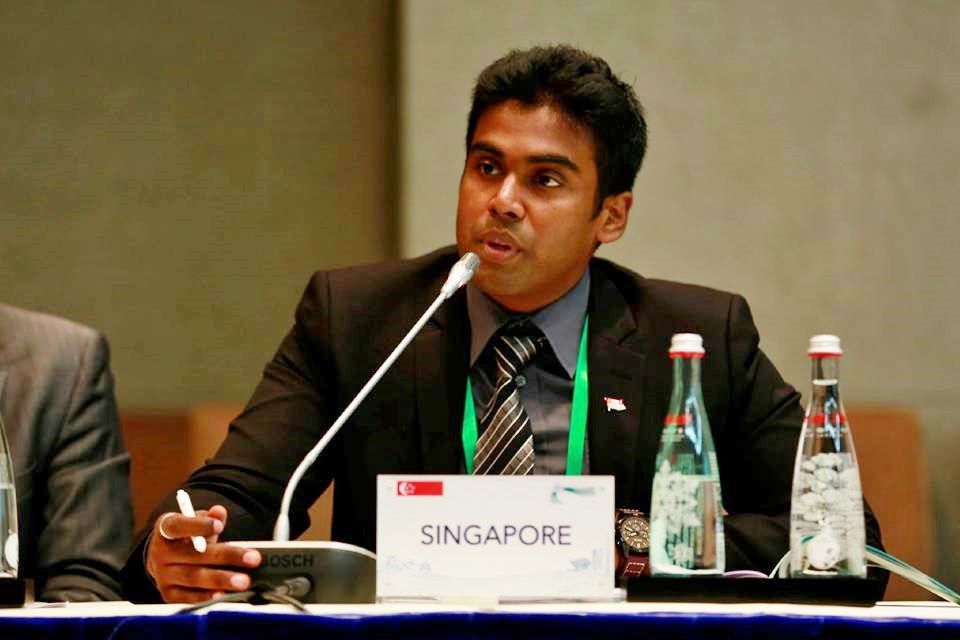Over 60 youths aged 16 to 25 years old joined MOE’s inaugural engagement series, ‘What’s Your Take – Youth Edition’ (WYT-YE). The sessions ran from May 2020 to January 2021. Their challenge was to come up with innovative ways to address issues of mental health and cyber wellness.
From this pool, four groups advanced to the prototyping phase where they received funding and support from MOE to develop their projects. The groups presented prototypes of their solutions to Minister of State for Education, Ms Sun Xueling, in January.
To support the groups on their next steps, MOE linked the groups with relevant community organisations to further refine their prototypes for implementation.
From a digital choose-your-adventure story to a virtual escape room, here’s a look at the creative projects and young people behind them.
Project name: Juggling Judgements
Hoping to make students more conscious about their actions online, this 14-member group devised lesson activities on cyber wellness. They created a prototype for a ‘gamified story journey’. Players start as the main character, Dale, who is a victim of cyber bullying. They meet other characters, including bystanders and the bully, Klar. Along the way, players make choices, which result in different endings – driving home lessons about the impact and consequences of bullying.

Prototype of the group’s gamified story journey user interface
One member, Ding Ruo Kun, once had to deal with cyber bullying in secondary school. The Singapore Polytechnic student shared that her past experience motivated her to seek ways to strengthen the cyber wellness of fellow youths through gamification and the use of personal stories.

A group member explaining the mechanics behind his group’s gamified story journey prototype
“It made me realise that we all have a part to play in cyber wellness,” she said. “This inspired me to join the project as I want to help tackle harmful practices in the cybersphere.
Project name: Get Flamed!
Seeking to educate youths on the danger of toxic behaviour in online gaming, this group embarked on their project to make a positive change.
The group prototyped a Youth Gaming Conversation Series and a virtual escape room.
The conversation series provides a platform for gamers to share personal insights and experiences with toxic behaviour in online gaming. This helps students to bond over common gaming experiences and consciously reduce negative in-game behaviours such as disturbing other players, cursing or cheating.

The group’s Youth Gaming Conversation Series features a host and guest speaker discussing toxic behaviours in online gaming
The group also considered the need to encourage responsible decision-making and impart skills of effective conflict management. By playing as an online gamer, the interactive ‘choose-your-own-adventure’ feature of the virtual escape room presents students with different choices which lead to different consequences on the player’s online and offline relationships.

Group members displaying the Certificate of Appreciation awarded by Minister of State for Education, Ms Sun Xueling
Reflecting on his journey participating in MOE’s WYT-YE, Year 3 group leader, Muhammed Syazan Bin Saad of Temasek Polytechnic, shared: “It’s heart-warming to see the power and impact youths can make through co-creation. Our project shows that there are creative ways that youths can make positive change in improving the mental health capabilities and cyber wellness of our juniors.”
Project name: Digiminds
Digiminds set out to raise awareness on building healthy relationships through social media.

Members fielded questions from the audience and judging panel regarding their project and prototype
Using a series of hands-on activities and debates, the group hopes to educate youths on how they can identify and protect themselves from the risks of social media. During debates, students are assigned unique characters such as The Influencer, a user who values their online image and The Memer, someone who consumes and produces funny content. They are then tasked to exchange viewpoints on the impact of social media on their inter-personal relationships.

Unique character and reaction sticks to be used by student participants during the debates
To raise students’ awareness of social media use and habits, the group challenges students to embark on a seven-day social media detox. It features daily tasks designed to disrupt poor social media habits, such as setting a time limit on social media usage and unfollowing accounts that negatively affect one’s well-being. Fellow group member, Zechariah Tan, a Year 2 student from Republic Polytechnic, took on the challenge himself and found it to be a positive experience, benefiting his mental and physical health.
Project name: The Catalyst
Aware of the stigma around issues of mental health, eight youth advocates from different post-secondary institutions banded together to create a ‘mental health collective’, The Catalyst.
The group aspires to empower youths to become active changemakers and promote a culture of empathy in their own communities. The Catalyst offers youth advocates across diverse backgrounds, the opportunity to pull together their various mental health advocacy initiatives in a single platform.

Year 3 Singapore Management University student, Aanya Jain, shared the future plans for the ‘mental health collective’ prototype
This collective will also feature networking and sharing sessions organised by student groups or organisations. In the future, the group also plans to develop more opportunities such as hosting workshops and an adult-mentorship programme in close collaboration with the Youth Mental Well-being Network.
 With social media, the group plans to expand their ‘mental health collective’ by reaching out to other youth advocates
With social media, the group plans to expand their ‘mental health collective’ by reaching out to other youth advocates
The most significant thing about the experience? The co-creation of ideas fostered from youth collaboration. Third year Singapore Management University student, Aanya Jain, shared: “I am glad to have met with other youths like me who are equally passionate about making a positive difference to Singapore’s mental health landscape. Through The Catalyst, my group hopes to reduce the stigma around mental health issues.”
MOE will be organising more WYT-YE sessions in future, do email engagement@moe.gov.sg if you would like to be updated on these sessions!




.jpg)

